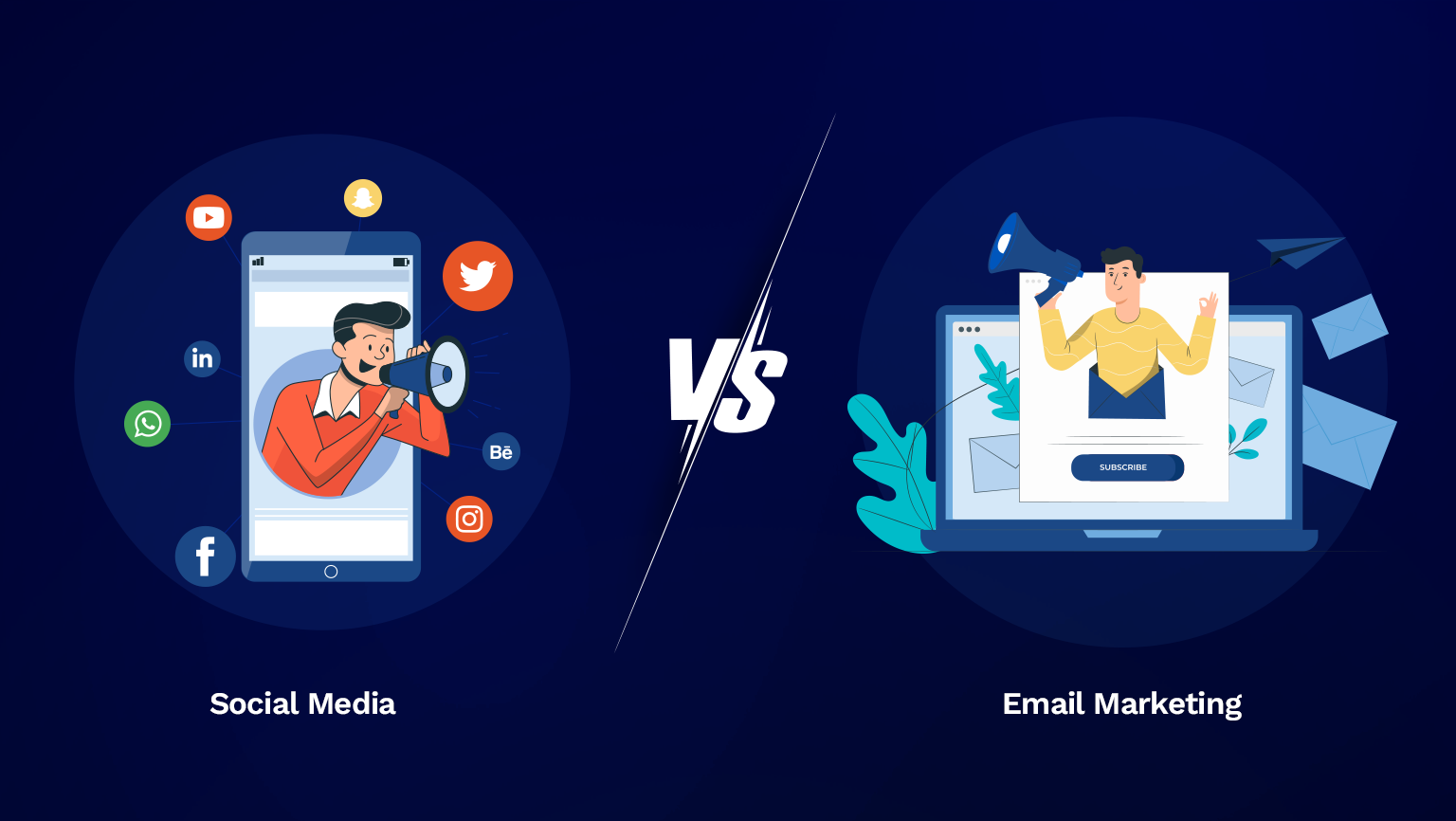When it comes to digital marketing, two of the most popular and talked-about channels are email marketing and social media marketing. But here’s the real question:
Which one gives you better ROI (Return on Investment)?
As a fresher in the digital marketing space, I’ve often heard people say,
“Social media gets the buzz, but email brings the money.”
Let’s break down both channels — their strengths, weaknesses, and how they compare in terms of ROI.
What Is Email Marketing?
Email marketing is sending targeted messages directly to people’s inboxes. These could be:
-
Newsletters
-
Offers and discounts
-
Product updates
-
Welcome sequences
-
Abandoned cart reminders
You own your email list and can reach your audience whenever you want — no algorithms involved.
What Is Social Media Marketing?
Social media marketing involves promoting your brand through platforms like:
-
Instagram
-
Facebook
-
LinkedIn
-
Twitter (X)
-
TikTok
It’s visual, fast-paced, and community-driven. You engage through posts, stories, reels, lives, and more.
ROI Breakdown: Email vs Social Media
Let’s look at what data and marketers say about ROI on both platforms.
| Metric | Email Marketing | Social Media |
|---|---|---|
| Average ROI | $36–$42 for every $1 spent | Varies (typically lower than email) |
| Open/Engagement Control | Full control (sent to inbox) | Dependent on algorithm |
| Audience Ownership | Yes (you own the list) | No (platform owns your followers) |
| Cost | Low (ESP + design tools) | Medium–High (ads, content creation) |
| Conversion Rate | High (especially with warm leads) | Moderate (depends on platform) |
| Best For | Nurturing leads, sales, retention | Brand awareness, engagement, reach |
- Winner (for ROI): Email Marketing
Strengths of Email Marketing
-
High Deliverability: You reach people directly.
-
Personalization: Use names, behaviors, interests.
-
Automation: Set up sequences once, and they work on auto-pilot.
-
Better CTR: Higher click-through rates than most social posts.
Example: I recently tested a simple welcome email sequence using Mailchimp and saw a 40% open rate and 8% click rate — without spending on ads.
Strengths of Social Media Marketing
-
Massive Reach: Instantly visible to a wide audience.
-
Visual Branding: Strong for building brand identity.
-
Viral Potential: Posts and reels can blow up overnight.
-
Community Engagement: Great for starting conversations, polls, DMs.
But, social media reach is often limited by platform algorithms — unless you pay for ads.
So, Which Should You Focus On?
Trick answer: BOTH.
Here’s how I recommend using them together:
-
Use social media to attract and engage new audiences
-
Use email to nurture and convert those audiences into customers
Funnel example:
Instagram Story ➝ Freebie Link ➝ Email Signup ➝ Welcome Series ➝ Offer ➝ Sale
That way, you’re not depending on likes or views alone — you’re building long-term trust in people’s inboxes.
If you’re serious about ROI, email marketing wins. It’s direct, data-rich, and cost-effective. But that doesn’t mean social media is useless — it plays a key role in visibility and relationship-building.
As a fresher, I started by growing my Instagram AND collecting emails through freebies. It’s a combo that’s helped me grow smarter, not harder.

